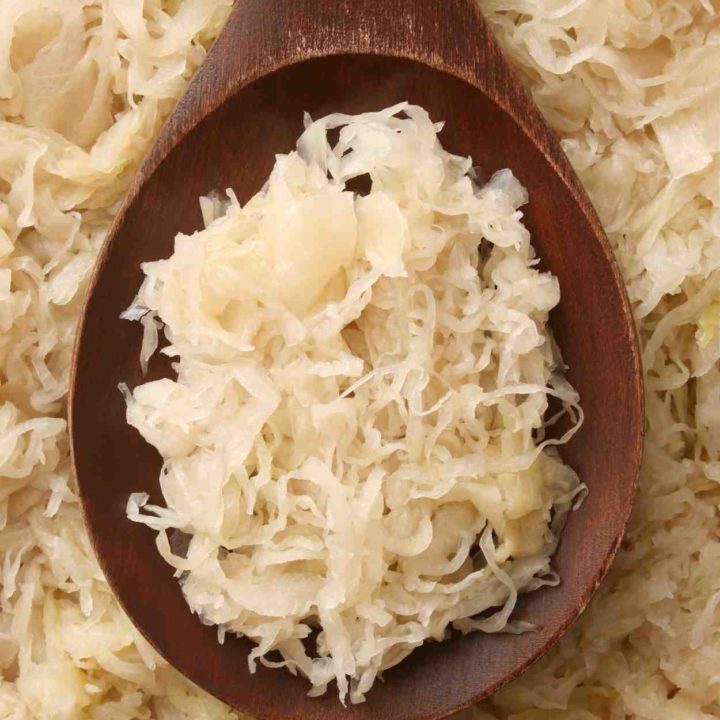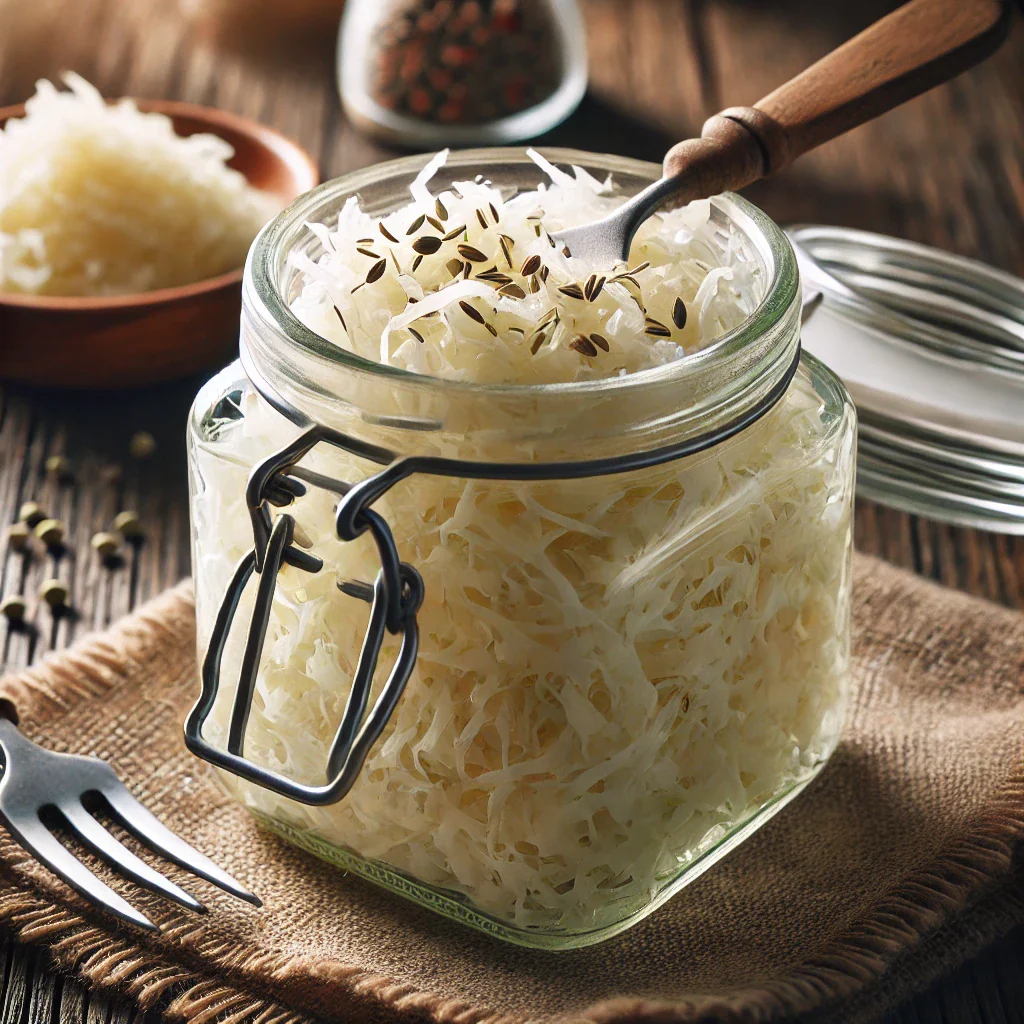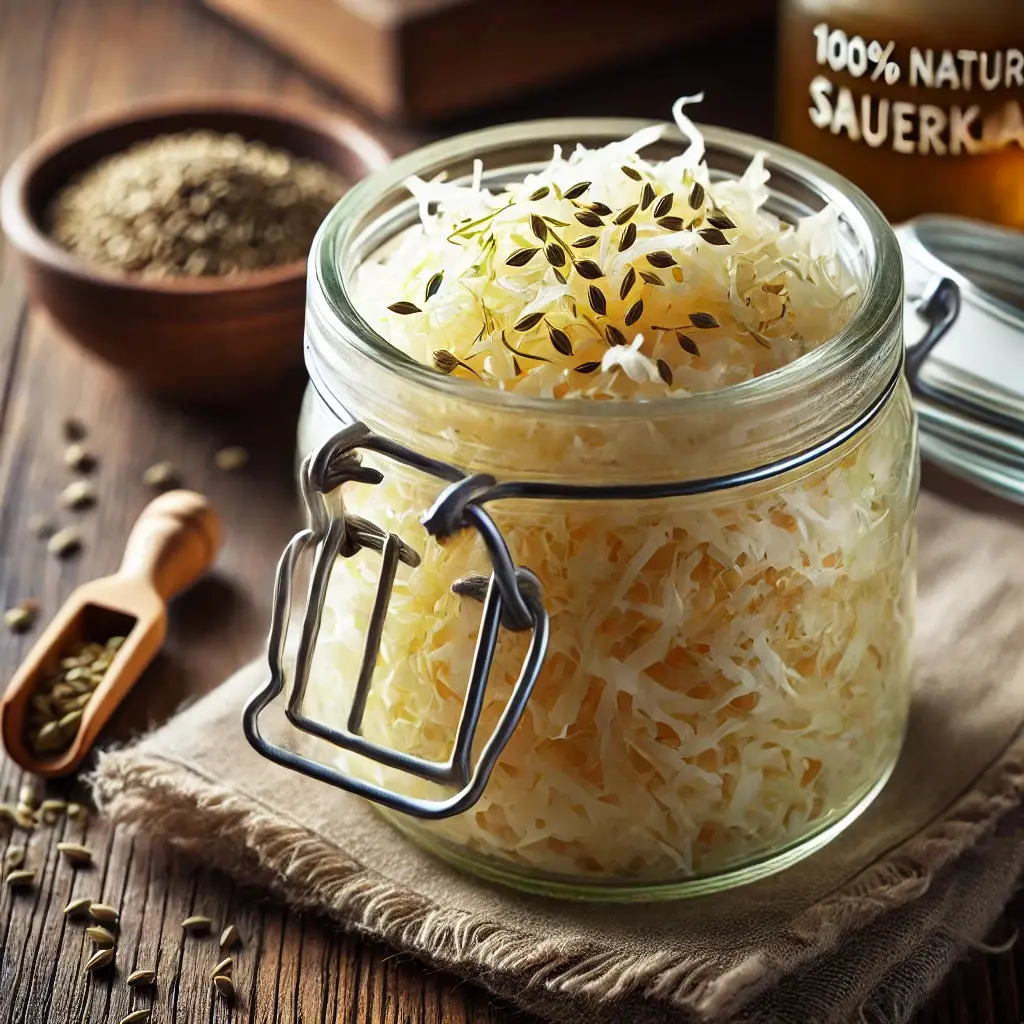Introduction
Sauerkraut, a beloved fermented dish made from finely shredded cabbage and seasoned with salt, boasts a delightful tangy flavor and numerous health benefits. With its crunchy texture and probiotic qualities, sauerkraut has found its way into many diets around the world. However, when it comes to food safety and storage, many people wonder: how long will sauerkraut last in the refrigerator? This article aims to provide a comprehensive exploration of the factors affecting the shelf life of sauerkraut in your fridge, optimal storage methods, and signs of spoilage, while delivering well-researched insights.
Understanding Sauerkraut and Its Fermentation Process
The Fermentation Process
Sauerkraut is created through a process called lacto-fermentation, where naturally occurring bacteria (lactobacillus) convert sugars in the cabbage into lactic acid. This not only preserves the cabbage but also gives sauerkraut its distinct sour flavor. During fermentation, beneficial enzymes and probiotics are produced, enhancing its nutritional profile. To produce quality sauerkraut, raw cabbage, and salt are the primary ingredients; various spices and herbs may also be added for flavor.
Health Benefits of Sauerkraut
Apart from its taste, sauerkraut is packed with health benefits. It’s rich in vitamins C and K, and probiotics that support gut health. Studies have suggested that fermented foods like sauerkraut can enhance digestion and may contribute to a healthier immune system. The presence of fiber also makes it a good option for maintaining digestive health.
Types of Sauerkraut
Sauerkraut can vary in its texture and flavor depending on the ingredients and fermentation techniques used. There are traditional varieties, which emphasize the basic fermentation of cabbage and salt, as well as some modern takes that incorporate other vegetables and flavors such as carrots, beets, or spices. Each type may have different shelf lives based on both its ingredients and the fermentation process.
How Long Will Sauerkraut Last in the Refrigerator?
Once opened, the shelf life of sauerkraut in the refrigerator will vary. Generally speaking, if properly stored, sauerkraut can last about 4 to 6 months in the fridge. This can seem like a considerable length of time, but various factors can influence how long it stays fresh.
Proper Storage Methods
Unopened Sauerkraut
Unopened jars of commercially prepared sauerkraut can usually last up to 1 year in the refrigerator, as they are usually pasteurized and preserved. For homemade sauerkraut, it should be kept in an airtight container and will also maintain its quality for about 2 to 3 months in the refrigerator.
Opened Sauerkraut
After opening, sauerkraut should be stored in an airtight container and placed in the coldest part of your refrigerator. The goal is to minimize exposure to air, which can accelerate spoilage. When properly stored, it can last 4 to 6 months after opening, though it’s essential to monitor its state.
Factors Influencing the Shelf Life of Sauerkraut
Temperature and Environment
The temperature of your refrigerator plays a significant role in how long sauerkraut lasts. Ideally, your refrigerator should be set at or below 40°F (4°C). At this temperature, the growth of spoilage bacteria is slowed. If your refrigerator fluctuates in temperature or is kept above this mark, the shelf life of the sauerkraut can decrease significantly.
Packaging and Exposure to Air
When sauerkraut is exposed to air, it can undergo oxidation. This process affects both the flavor and texture, leading to an off taste. Always ensure the container is sealed tightly and try to use a spatula or spoon that is clean and dry to scoop out servings.
Type of Sauerkraut
As mentioned earlier, the type of sauerkraut can influence its shelf life. Store-bought varieties often contain preservatives and are pasteurized, helping them last longer, while homemade versions are typically more susceptible to spoilage.
Signs of Spoilage in Sauerkraut
Visual Indicators
Before consuming sauerkraut that has been in your refrigerator for a while, always check for any visual signs of spoilage. Fresh sauerkraut should maintain a vibrant color. If you notice any discoloration, fuzzy mold, or an overall slimy texture, it’s best to discard it.
Smell
The aroma of sauerkraut is typically strong and pungent, which can be off-putting to some. However, if it begins to emit a foul or rancid odor, it’s a definite sign that the sauerkraut has gone bad. Fresh sauerkraut should have a fermented smell that is sour but not unpleasant.
Taste Test
If visual and olfactory checks don’t provide clear answers, you can conduct a taste test. If you find that your sauerkraut tastes off or has an unexpected texture, it’s best to err on the side of caution and not consume it.
Ideal Storage Conditions
Storing Store-Bought Sauerkraut
Store-bought sauerkraut can typically be found in the refrigerator section of grocery stores. For optimal storage:
- Keep It Refrigerated: Once you bring it home, place the container in the refrigerator promptly. Aim for a consistent temperature, ideally 32°F to 40°F (0°C to 4°C).
- Seal Properly: Make sure the container is well-sealed. If it’s in a jar, ensure the lid is tight to prevent exposure to air, which can lead to spoilage.
- Avoid Contamination: Always use clean utensils to scoop out sauerkraut. This practice helps prevent introducing bacteria that could spoil the remainder.
Storing Homemade Sauerkraut
For homemade sauerkraut, the storage method is crucial to extend its shelf life.
- Fermentation Completion: Ensure that the fermentation is complete before moving the sauerkraut to the refrigerator. The tangy flavor indicates readiness.
- Use Glass Jars: Store homemade sauerkraut in glass jars with tight-fitting lids. Mason jars are excellent options as they can handle the pressure created during fermentation.
- Submerge in Brine: Ensure the sauerkraut is submerged in its brine. This method helps to prevent exposure to air, thus prolonging freshness.
- Keep Refrigerated: Immediately transfer the jars to the refrigerator after fermentation. Store at the back of the fridge where the temperature is the most stable.
Tips for Extending the Life of Sauerkraut
Store in Smaller Portions
If you tend to use sauerkraut infrequently, consider dividing it into smaller portions and freezing one or more of those portions. While freezing may alter the texture somewhat, it can be a great way to maintain the sauerkraut’s quality long-term.
Keep the Brine
The brine in which sauerkraut is stored is vital for its longevity. This salty liquid not only adds flavor but acts as a natural preservative. Always ensure that the cabbage is submerged in the brine to ward off exposure to air and bacteria.
Use Clean Utensils
To avoid introducing unwanted bacteria into the jar, use clean utensils each time you scoop out sauerkraut. Even a small amount of contamination can lead to quicker spoilage.
 Creative Ways to Use Leftover Sauerkraut
Creative Ways to Use Leftover Sauerkraut
If you find you have an abundance of sauerkraut, there are countless ways to incorporate it into delicious dishes.
Sauerkraut in Salads
Add sauerkraut to salads for a tangy twist. It can improve the flavor profile and increase the nutritional content. Consider combining it with greens, nuts, and a light vinaigrette.
Sauerkraut in Sandwiches
Sauerkraut is an excellent addition to sandwiches, particularly with meats like pastrami or corned beef. The contrast of flavors intensifies the overall taste and also offers a satisfying crunch.
Sauerkraut as a Topping
Use sauerkraut as a topping for burgers, hot dogs, or even baked potatoes. It adds a savory and zesty element to these comfort foods.
Sauerkraut Soups
Incorporate sauerkraut into soups, particularly those with a base of meats or broths. It can add depth and a unique flavor that enhances the overall dish.
Casseroles and Bakes
Mix sauerkraut into casseroles or bakes. It pairs beautifully with potatoes and cheeses, producing a comforting dish that showcases fermented flavors.
Conclusion
So, how long will sauerkraut last in the refrigerator? If properly stored, opened sauerkraut can typically last between 4 and 6 months, while unopened jars can endure for much longer. Understanding the proper storage methods, the indicators of spoilage, and ways to extend the sauerkraut’s life will allow you to enjoy this fermented delight to its fullest. Incorporating sauerkraut into your meals not only enhances flavors but also offers numerous health benefits, making it a worthy addition to any diet. Stay mindful of storage practices, and you can relish the unique taste and nutrition of sauerkraut for months to come.


